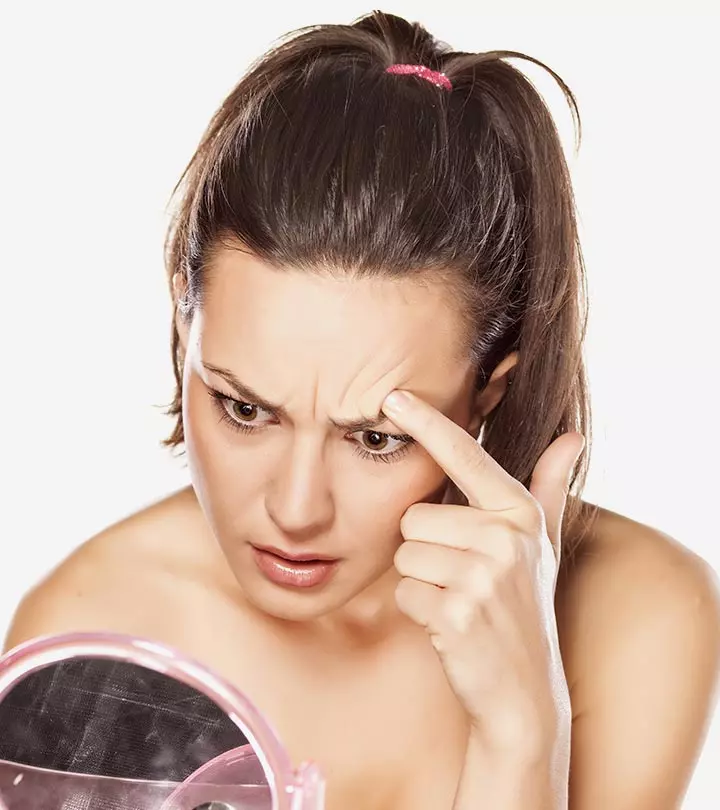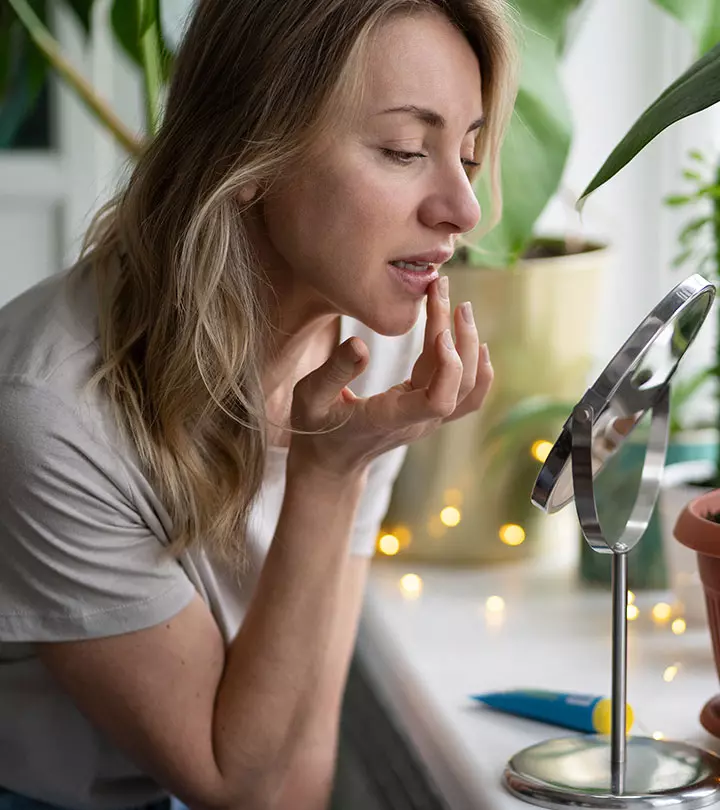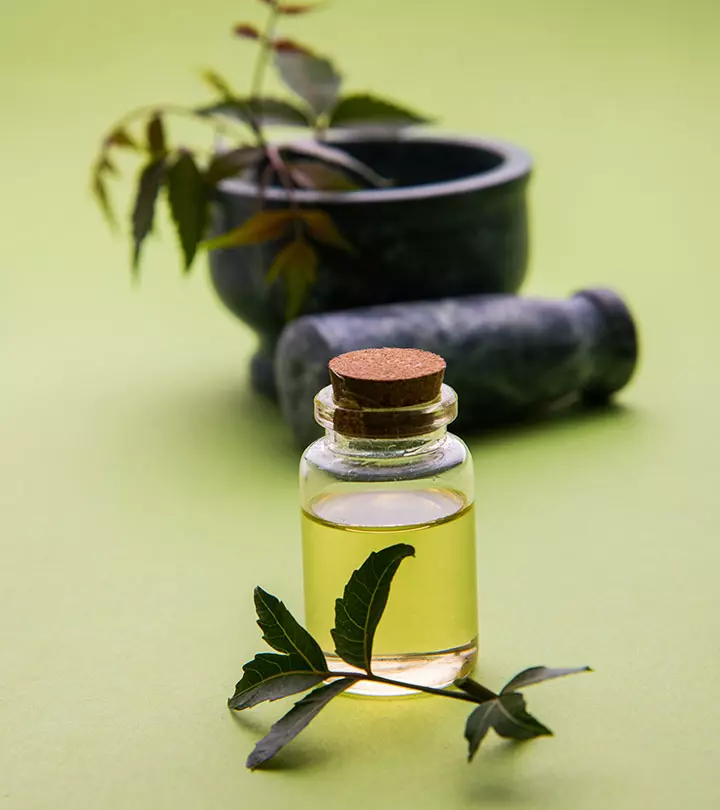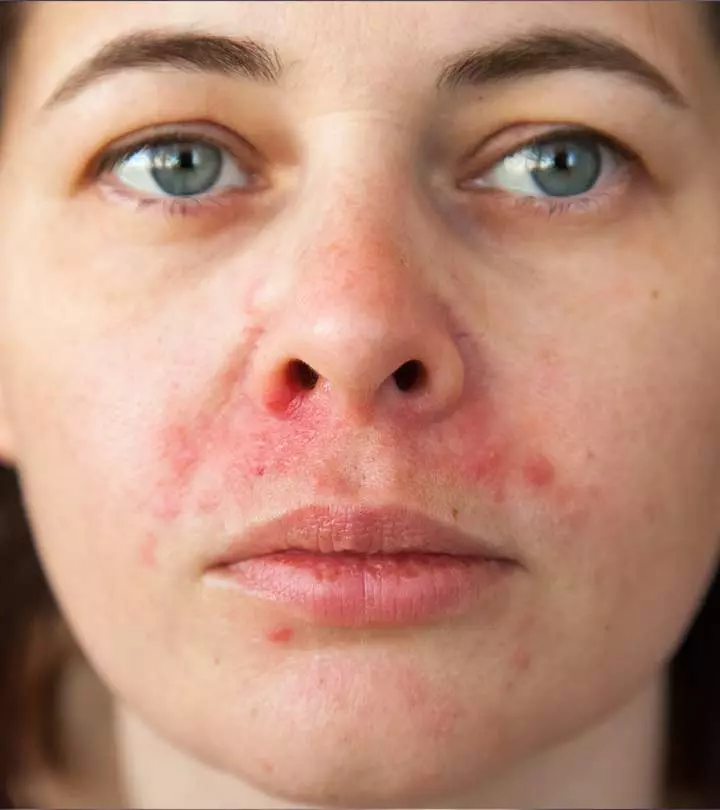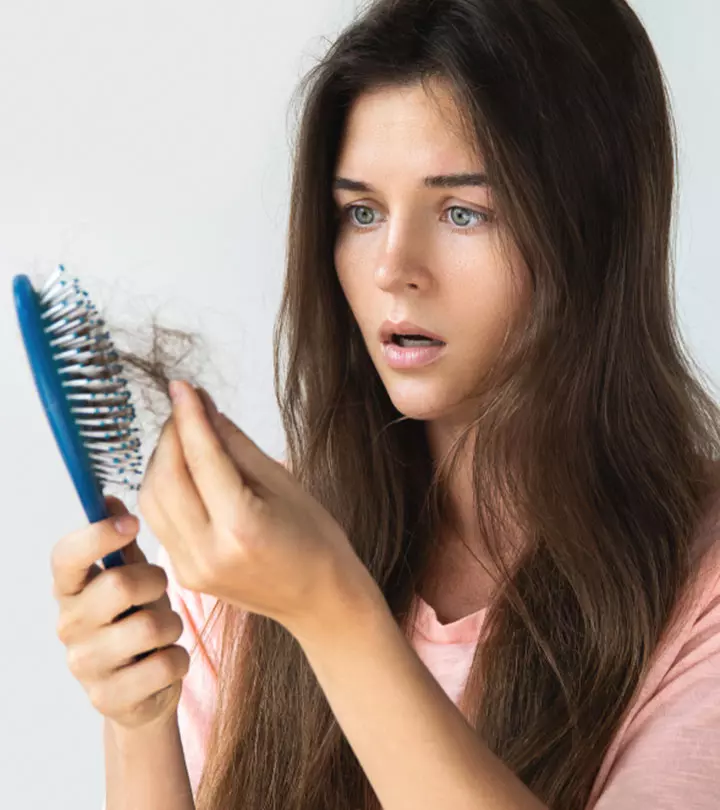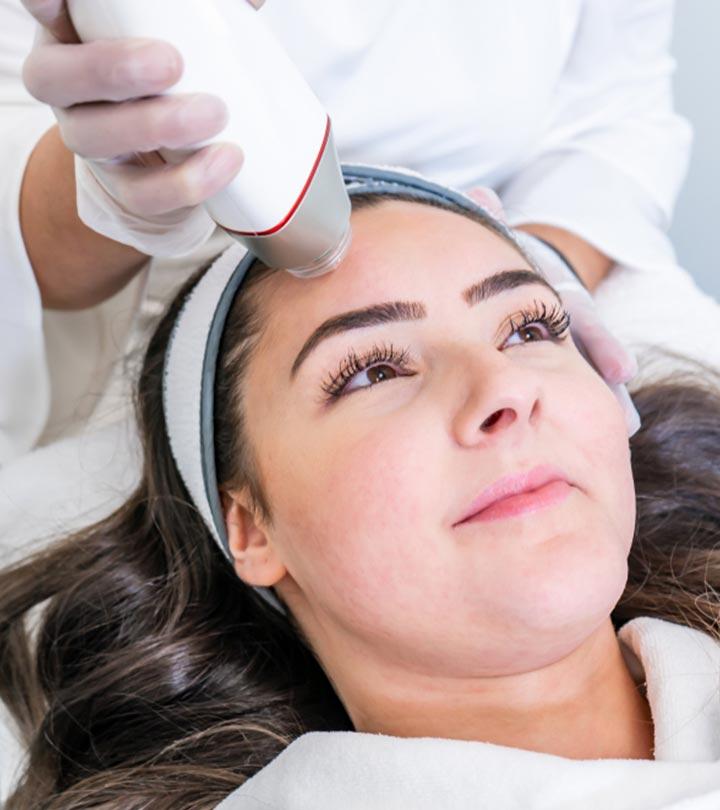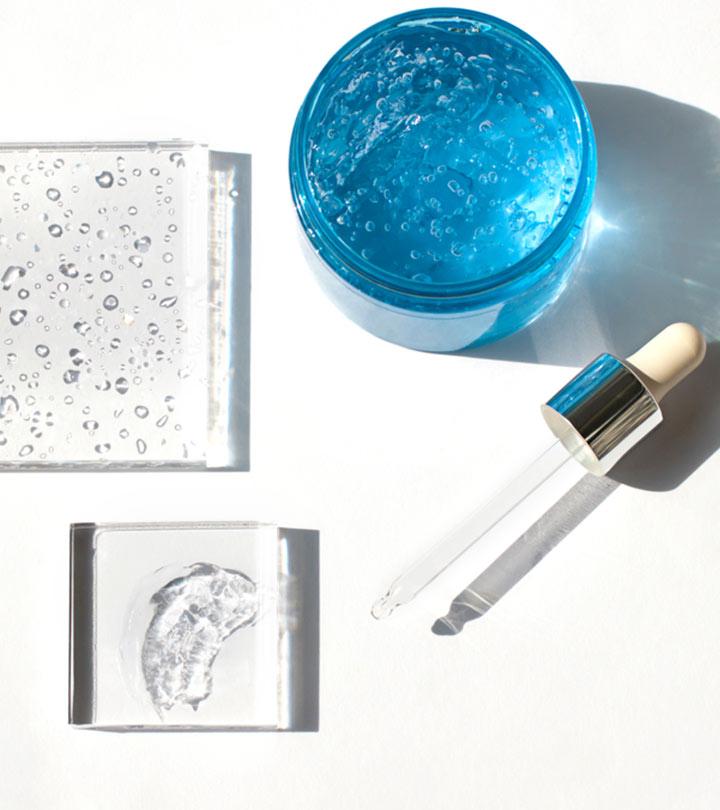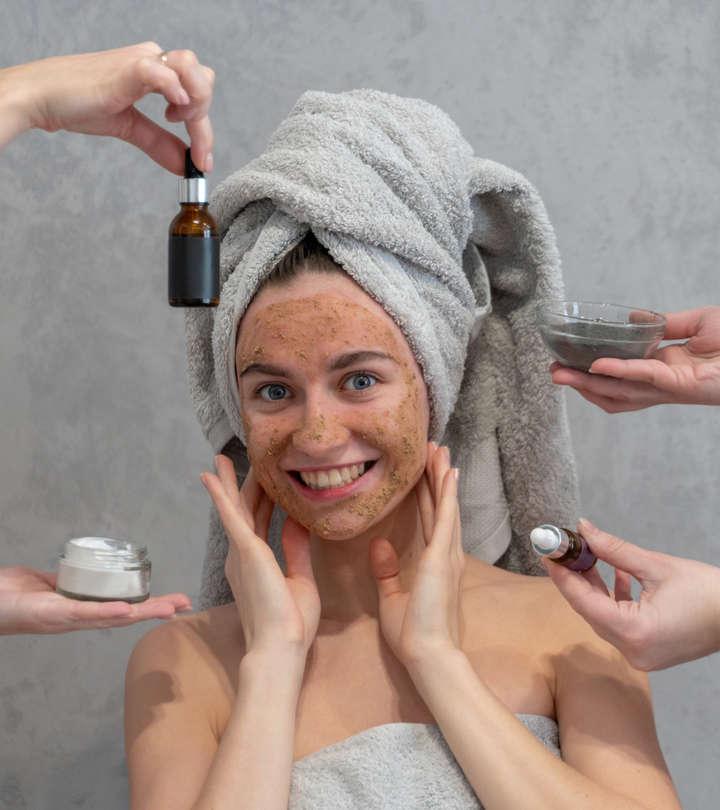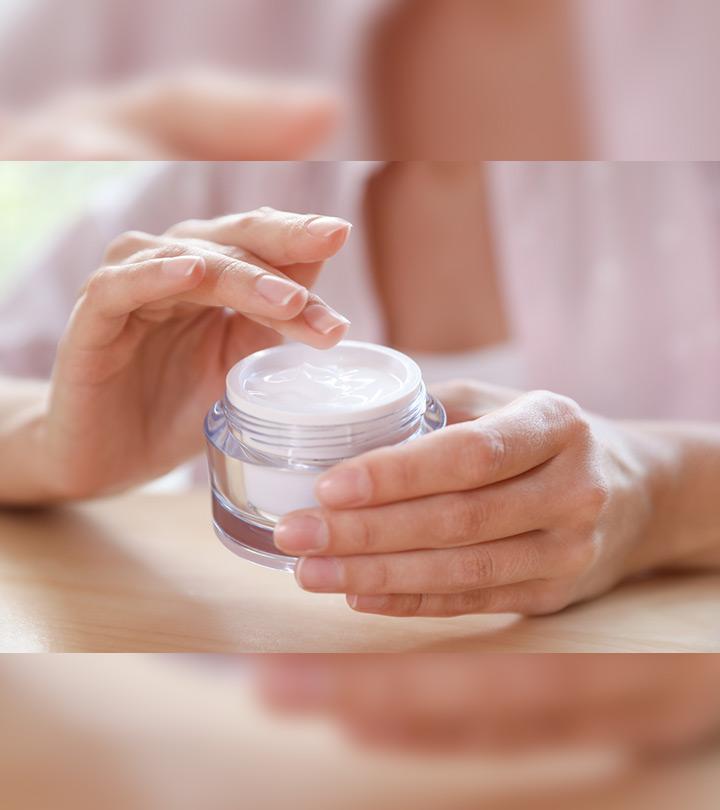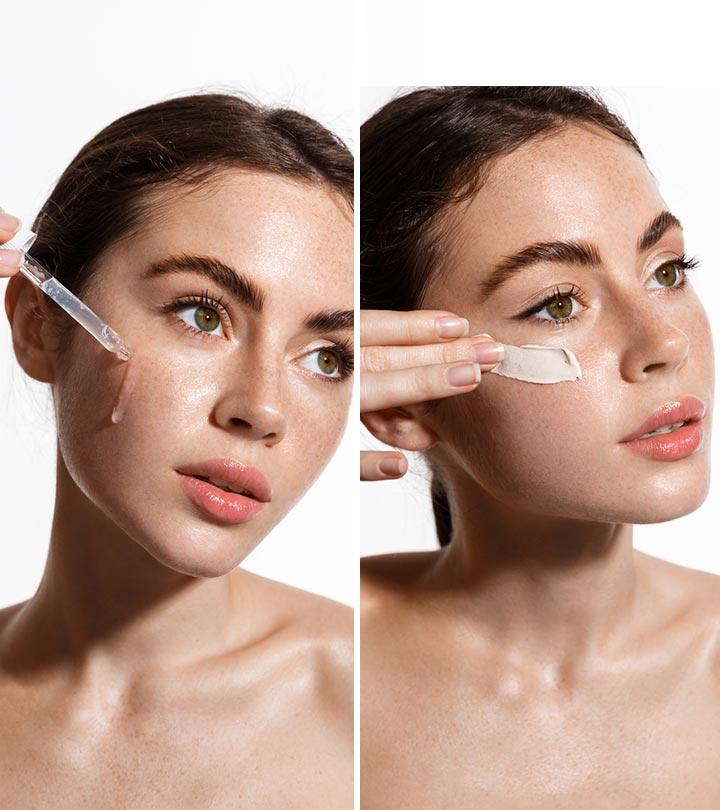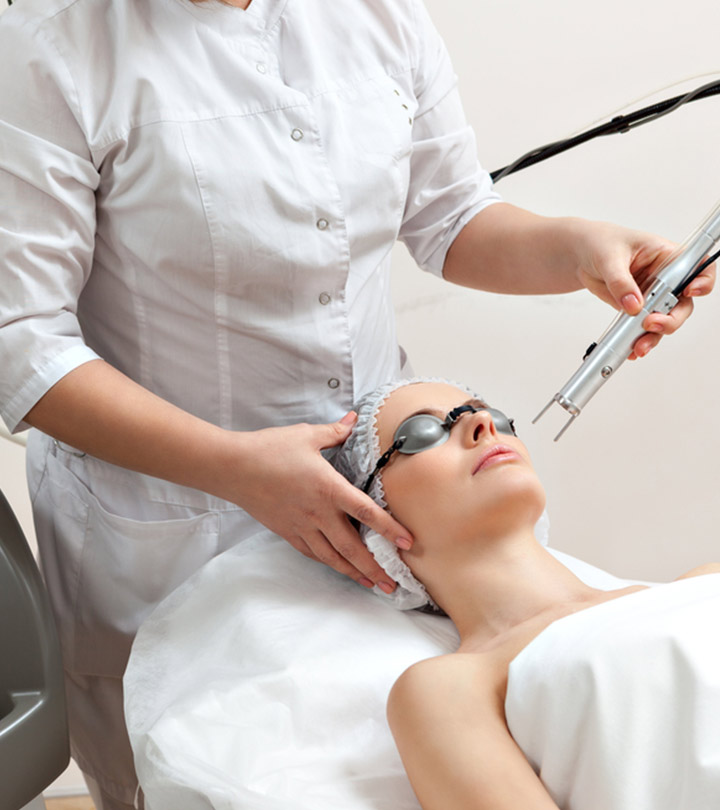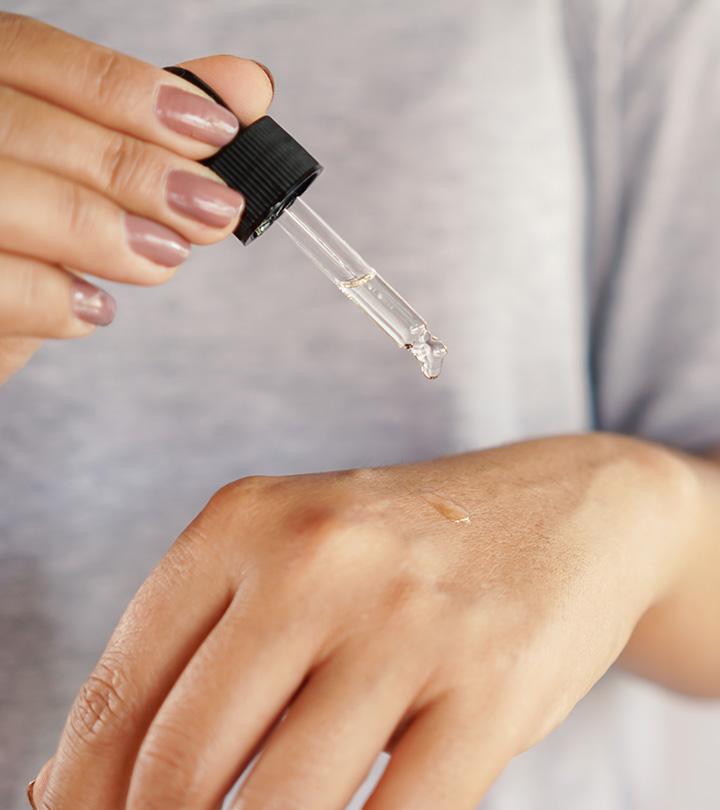Discoid Eczema: Symptoms, Causes, How To Treat, & Prevention
Learn the easiest ways to manage the symptoms and treat this itchy skin condition.
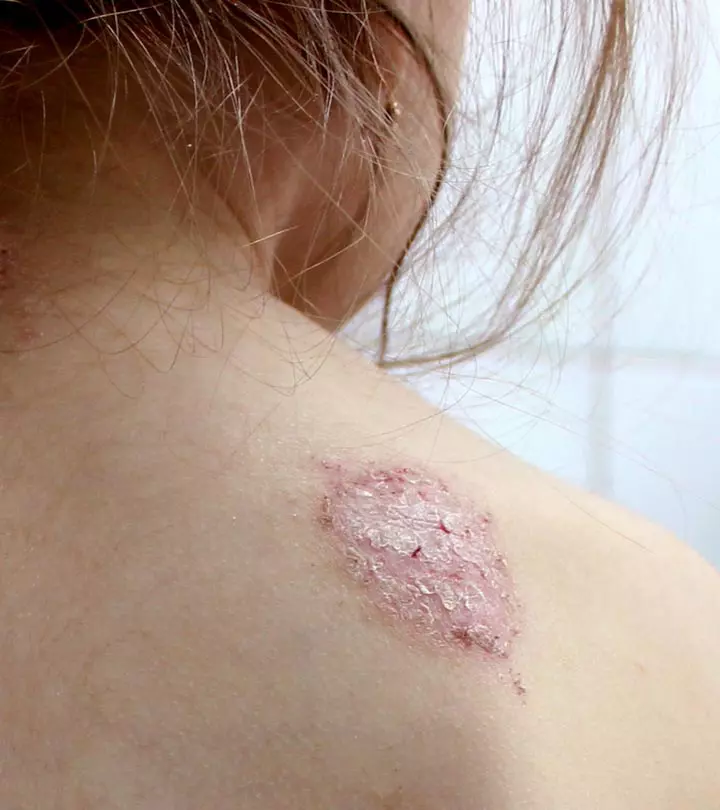
Image: Shutterstock
The itchy, coin-shaped rash on your skin may be discoid eczema. The condition is characterized by itchy, swollen, or cracked skin. It may occur in groups of small bumps and can often be mistaken for skin allergies.
Here, we discuss the common symptoms of discoid eczema, who is at risk, and the treatment options available. Keep reading.
In This Article
What Is Discoid Eczema?
Discoid eczema, also known as nummular or discoid dermatitis, is an inflammatory skin condition. It is a chronic condition that causes coin-like rashes or plaques of eczema. Discoid eczema leads to itchy, swollen, and cracked skin. It can last for weeks, months, or even years, and may recur too.
Discoid eczema can affect different parts of your body. However, the lower legs, hands, forearms, and trunk are the commonly affected areas. Dr. Kellie Reed, a board-certified dermatologist, says, “It is traditionally on the extremities (lower legs in men, forearms, and tops of hands in women).”
 Quick Tip
Quick TipAs there are different types of eczema, knowing the symptoms of discoid eczema can help identify it. We have discussed the same in the next section.
Symptoms Of Discoid Eczema
Discoid eczema initially manifests as a group of small spots or bumps on the skin. These small bumps may clump together to form larger patches. They can be pink, red, or darker brown – depending on your skin tone.
The patches are:
- Coin-shaped raised spots
- Swollen
- Have tiny vesicles
- Itchy
- Dry
- Crusty and flaky
- Cracked
- Blistered
You may develop more than one patch at the same time. The skin at the center of the patch is often dry. Over time, this central part clears and only the outer part remains.
Scratching the patches can cause infection, whose signs include:
- Fluid oozes from the patches
- Yellow crust may develop over the patches
- Affected area may become hot, swollen, and tender
- You may feel sick, hot, or shivery
A blogger describes her experience of struggling with discoid eczema and how painful it has been. She shares that she had initially started on steroidal creams to manage the condition but discontinued it, adding, “TSW [topical steroid withdrawal] followers believe that long term steroidal use actually perpetuates the eczema problem. Which is quite true in my experience because despite my faithful use of steroid creams over the years, my eczema patches never really healed. Instead, I encountered even more patches popping up all over my limbs. For true healing to take place, I needed to stop the use of steroids completely. C O M P L E T E L Y…. My discoid eczema patches are in a terrible state. They are angry red and oozing yellowish plasma. Some of them have a thickened scaly surface. It’s utter gross-ness (i).”
Some people may develop discoid eczema more frequently. New spots appear as the older ones clear. More than one patch may occur at the same time. Certain people could be more prone to this skin condition. Let us understand more in the next section.
Who Gets Discoid Eczema?
While anyone may develop discoid eczema, people with a history of atopic eczema and allergic contact dermatitis are at a higher risk.
Children with severe atopic dermatitis can develop excessively dry and itchy skin. This may cause discoid eczema.
However, discoid eczema is known to usually manifest in people belonging to the following age groups (1):
- 15 to 25 years, in women
- 50 to 65 years, in men
It is important to note that discoid eczema is more common in women than in men. Though some people are more prone to this eczema, the actual cause is not clear. However, certain factors may increase the risk.
What Causes Discoid Eczema?
According to Dr. Reed, “The exact cause has not been determined. However, there are views considering that discoid eczema may be due to skin infections (secondary to bacterial colonization), contact allergies or irritants, or xerosis (dry skin).”
It is more likely to affect people who:
- Have dry and sensitive skin.
- Have atopy (a genetic tendency to develop allergic diseases such as eczema and asthma).
- Are allergic to soap, detergents, and fragrances.
- Take baths with hot water.
- Use rough fabrics.
- Take medications like antivirals, interferon, ribavirin, retinoids, isotretinoin, and gold components (1).
- Have personal or family history of atopic dermatitis, allergies, or asthma.
The risk factors of discoid eczema include minor skin injuries including an insect bite or a burn. The affected area may develop patches. Discoid eczema worsens in dry and cold climates. But sunny and humid environments may improve discoid eczema symptoms. In a study, the prevalence of eczema was found to be low in parts of the United States where there was increased humidity, UV index, and temperature (2). Alcoholism is another risk factor for discoid eczema (3).
Start treatment as soon as possible to prevent further infection. A doctor may prescribe different remedies to heal your skin condition. Keep reading to know the diagnosis and treatment options.
 Quick Tip
Quick TipDiagnosis Of Discoid Eczema
The doctor inspects your skin and analyzes your medical history. A skin biopsy may also be performed to determine whether the rash is discoid eczema.
The doctor may perform a patch test if they suspect the rash to be caused by an external allergic reaction. According to a study, allergic contact dermatitis is relatively common in persistent discoid eczema (4). Hence, a patch test is recommended for all patients with severe discoid eczema.
How To Treat Discoid Eczema?
Discoid eczema can be cleared in a few weeks with proper treatment (5). But since there is no cure for eczema, you can keep the condition under control with the following:
- Emollients: You may frequently moisturize your skin with thick emollients and humectants.
- Topical corticosteroids: Use creams containing a steroid once to twice daily to reduce inflammation. However, always use these creams under a doctor’s supervision.
- Antihistamines: Sedative antihistamines like hydroxyzine may be used to reduce itching.
You can also follow a few other home remedies to reduce the chances of discoid eczema:
- Avoid soaps, detergents, and shower gels containing irritating chemicals.
- Bath in cool or lukewarm water.
- Keep the skin moisturized. Apply moisturizer twice a day.
- Keep the hands clean and nails short.
- Do not scratch the area.
- Use a humidifier to keep the room cool and moist.
Discoid eczema is a chronic condition that may reappear. But a few prevention tips may help.
How To Prevent Discoid Eczema?
- Use moisturizers daily.
- Drink enough water to keep yourself hydrated.
- Do not rub your body with a towel after bathing. Instead, pat the skin dry with a soft towel.
- Avoid tight clothing.
- Choose natural fabrics over artificial ones.
- Use mild, unscented detergents, soaps, and shampoos.
- Avoid hot baths or showers.
- Refrain from scratching the skin.
- Use a room humidifier.
- Reduce or quit alcohol intake.
When To See A Doctor?
Discoid eczema can be treated with home remedies and over-the-counter medications. However, you may have to seek medical help if the condition aggravates. Dr. Reed says, “If the skin cannot be managed with over-the-counter creams, or if it is widespread, itchy, or uncomfortable, it is recommended you seek out a board-certified dermatologist for evaluation.”
In some cases, other rashes can also mimic the appearance of discoid eczema. Consult your doctor to confirm the cause and diagnose the rashes.
Key Takeaways
- Discoid eczema is an inflammatory skin condition that causes coin-like rashes or plaques of eczema.
- People with a history of atopic eczema and allergic contact dermatitis are at a higher risk of developing discoid eczema.
- Moisturize the skin with thick emollients like petroleum jelly to keep discoid eczema under control.
Discoid eczema can affect anyone, although it is more common in persons who have dry or sensitive skin. This skin ailment is also more likely to occur in people who have a family history of other skin problems. Therefore, follow the above-mentioned preventative measures to be careful. You can manage the condition with regular moisturization and a healthy lifestyle. The good news is that you can effectively treat it with careful and regular treatment. However, over-the-counter medications are rarely effective for this type of eczema. Instead, schedule an appointment with your doctor to receive a proper diagnosis and treatment.
Frequently Asked Questions
Is discoid eczema a fungal infection?
Currently, the exact cause behind discoid eczema is unknown.
Is discoid eczema contagious?
No, discoid eczema is not contagious.
Listen to the expert advice from a dermatologist on managing discoid eczema effectively. The below video shares essential tips, including skincare routines, gentle products, and lifestyle adjustments to alleviate symptoms and maintain healthier skin. Play now!
References
Articles on StyleCraze are backed by verified information from peer-reviewed and academic research papers, reputed organizations, research institutions, and medical associations to ensure accuracy and relevance. Read our editorial policy to learn more.
(i) The journey begins…
https://stoppingsteroids.wordpress.com/2013/04/14/the-journey-begins/
References
Articles on StyleCraze are backed by verified information from peer-reviewed and academic research papers, reputed organizations, research institutions, and medical associations to ensure accuracy and relevance. Read our editorial policy to learn more.
- Nummular Dermatitis
https://www.ncbi.nlm.nih.gov/books/NBK565878/ - Climatic factors are associated with childhood eczema prevalence in US
https://www.ncbi.nlm.nih.gov/labs/pmc/articles/PMC3646081/ - Study on dermatoses and their prevalence in groups of confirmed alcoholic individuals in comparison to a non-alcoholic group of individuals
https://pubmed.ncbi.nlm.nih.gov/23793198/ - Patch Testing in Discoid Eczema
https://pubmed.ncbi.nlm.nih.gov/9197962/ - Nummular Eczema: An Updated Review
https://pubmed.ncbi.nlm.nih.gov/32778043/ - How To Treat Eczema In The Ears
- Eczema Scars: 10 Effective Ways To Improve Their Appearance
- What Causes Weeping Eczema? Types, Symptoms, Prevention, And Treatment
- Eczema On The Lips Everything You Need To Know About It
Read full bio of Dr. Madhuri Agarwal
Read full bio of Eshna Das
Read full bio of Monomita Chakraborty





